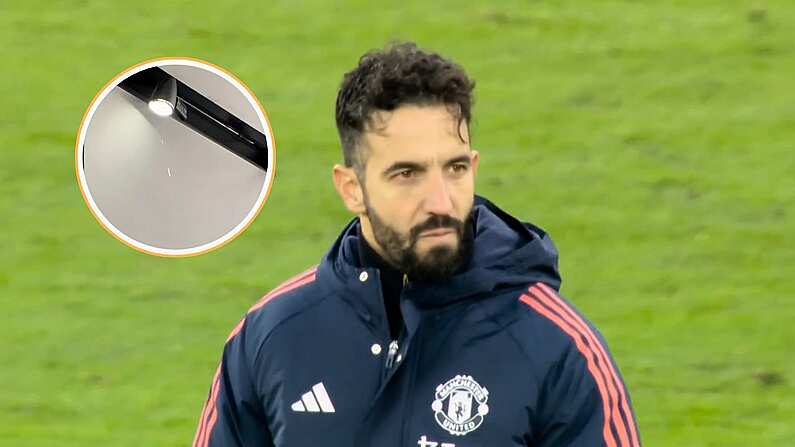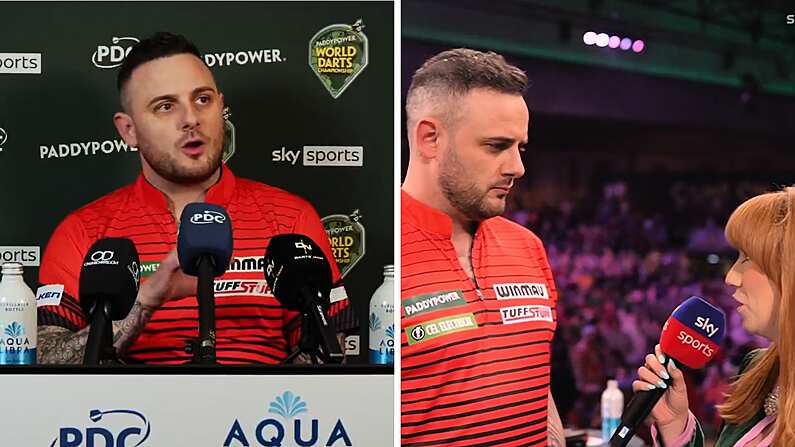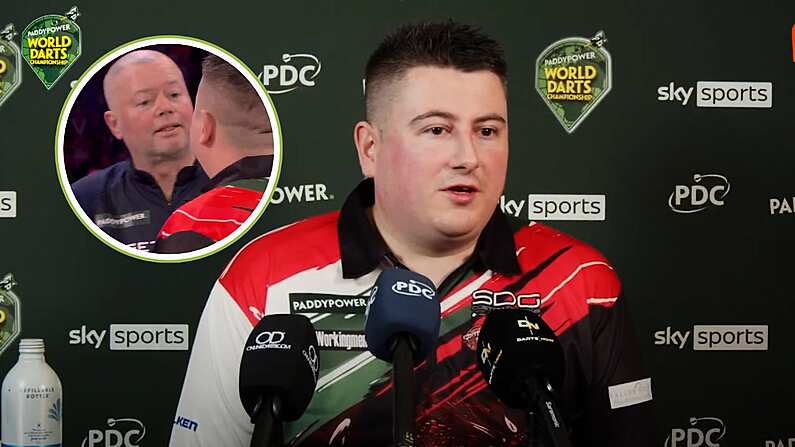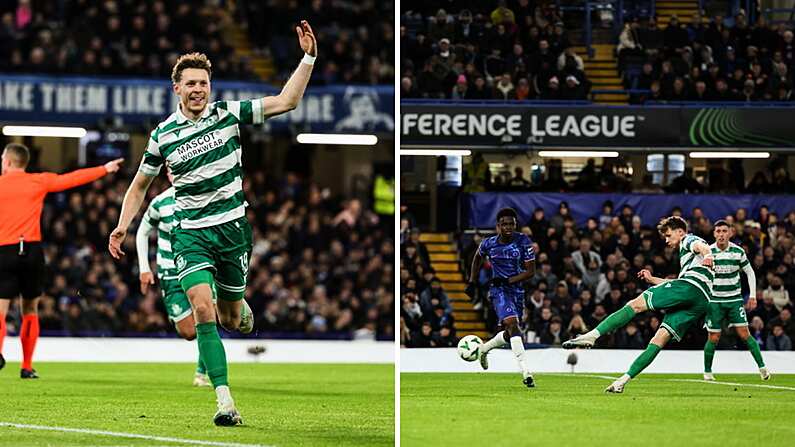Rarely have we seen a footballer who polarises opinion more so than Wayne Rooney.
Fans view Rooney for what he is currently; a lumbering attacking midfielder whose best days elapsed, it would seem, back in 2011. With that injury at Bayern Munich died Rooney's pace and explosiveness, and most peculiarly, his once more-than-decent first touch. In 2012, Alex Ferguson attempted to replace him with the more prolific Robin van Persie. Ferguson had finally succumbed to the harsh reality that Rooney - England's once-fabled White Pele - was in decline. Van Persie was frankly a superior forward in almost every sense.
12 months later, under David Moyes, Rooney signed a contract extension worth upwards of £200,000-per-week and was named both Manchester United captain and, rather farcically, an ambassador for the club from which he had attempted to depart on two occasions.
The English broadcast media, however, have a different relationship with the 30-year-old national team captain. In their charming naivety, they believe Liverpudlian can return to his imperious, swashbuckling best despite literally no physical evidence whatsoever having even remotely surfaced in the past five years. A top, top player. Nay, a top, top, top player. Sky Sports' default Man Of The Match in any 2-0 Manchester United win.
Sky report on The Idea Of Wayne Rooney; the all-conquering English forward he was supposed to become when he burst on the scene at Goodison Park in October 2002 - a full football career ago. England and United's talisman. Their captain. 'A gifted footbolah'.
It's an odd but seemingly unalterable loyalty - a blind one, at that - to a man whose club achievements and international goalscoring record are doubtless nothing to be scoffed at, but one whose relative shortcomings strikeas too difficult to confront following years of emotional investment.
Despite being a professional football manager of considerable experience, Roy Hodgson's perception of Wayne Rooney falls under the latter category.
Versus Iceland at the Euros, Rooney put in a ghastly performance, one worthy of ridicule, and faced the ire of (most of) the nation along with his equally hapless peers. Hodgson was ostracised by fans; another village idiot of English football who didn't have a notion what he was at (we could have told you that back in 2012, lads, frankly). His belief in Rooney was emblematic of the problem with the English national set-up; the manager was part of, and not removed from, 'the bubble'. Despite watching Rooney perpetually slow the pace of attacks and float vacuous 40-yard passes to either wing, for the second major tournament in a row, he kept faith in the man he hastily named captain following Steven Gerrard's retirement. A man who, on club form, scarcely deserved his place in the starting 11.
Not that Wayne Rooney thinks that, mind you. Speaking to Martin Samuel in today's Daily Mail, Rooney issued a not atypically almost-interesting criticism of Hodgson's approach - and in particular the former manager's decision to make six changes for England's final group game, with a subsequent 0-0 draw setting them up with a Last 16 tie with the mighty Iceland. It was the type of veiled remark that passes for Rooney 'blasting' someone, considering the last time he - or any notable England international - said anything of actual substance, the internet was in its formative stages.
If you leave playing your best, beaten by a better team, I accept that. But we didn't play. We had lost momentum from the Slovakia game and tournament football is about confidence. You get that from winning.
It was Roy's decision to make those changes against Slovakia and either way, the team he put out should have been able to win. But, right or wrong, I wanted to play and I can't deny that.
No, I wouldn't have rested six players. It's more than half the team. It was a gamble and it didn't pay off.
Given the footballing culture he has grown up in, it's probably too much to expect Rooney to accept some of the blame for his country's horrid showing in Nice. Why would he not believe himself borderline infallible when his country's leading tv football pundits are afraid to declare him a frequently ineffective player, or analyse one of his anonymous displays by saying something other than, "We know what he's capable of, but he wasn't at his best today, Wayne Rooney."
He's not a bad man, Rooney - his considerable charity work is testament to that - but he is the living embodiment of the Sky Sport-Premier League hype train and, as such, probably believes himself to be a world class player despite frankly never achieving such status in the game. How refreshing it would have been were he to have continued with his dissection of England's Euros exit and, rather than barb a manager who showed more faith in him than his performances merited, acknowledge his own culpability - his lack of movement, his impotent passing, his unbelievably bad touch which betrayed him on more than one occasion.
Nah. Hodgson's system - that was the problem.
Possession's fine, but it needs to have direction to it, and most times that has to be towards goal.
Every coach has his own thoughts on how it should be played, but if it's not working, what's the problem with going long, getting them on the back foot, make it uncomfortable for them?There are a lot of different ways to approach it, but pass, pass, pass, and then eventually pass back to your goalkeeper? For a forward player, that gets frustrating.
Which brings us to a watershed moment in the Manchester United man's career. Two new managers, neither of which will view him as undroppable or infallible. A crop of up-and-comers and/or new signings breathing down his neck in his preferred centre forward role. Legs that seem to have aged in dog years - or Wayne Rooney years - over the course of the past five seasons.
The bubble might not burst instantaneously for Rooney, but it's difficult not to get the impression that it has suffered a slow puncture as we approach the new season.











